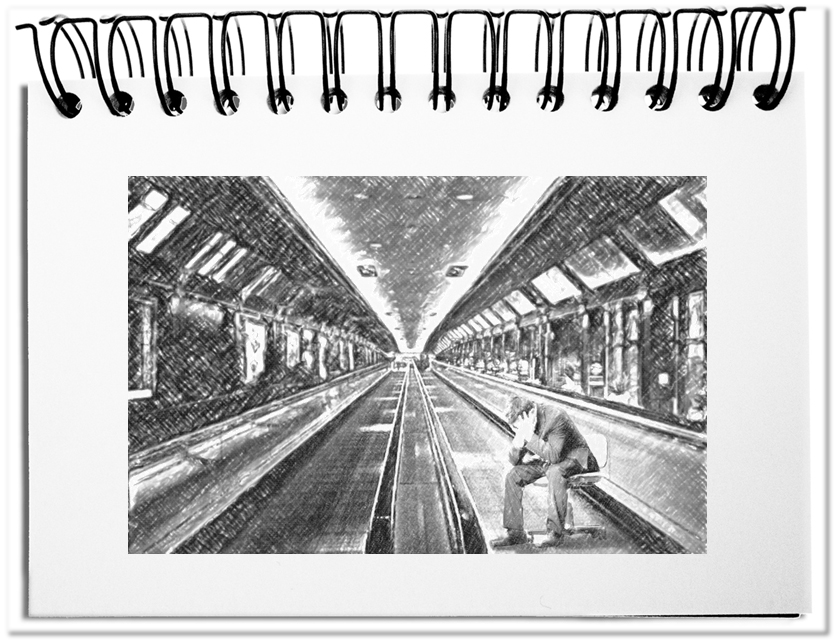There was a time when employees were cogs in a big machine. They had a fixed position in the clockwork company, which could be assumed without much preparation. Over time, one got to know the environment, broadened its knowledge, and to eventually rise to a responsible position with a better understanding of the big picture.
In the meantime, these machines have evolved into organisms that no longer consist of wheels and axles rigidly attached to one place, but of units that continuously adapt to changing customer needs, the constant worldwide coming and going of competitors and new technologies (e.g. digitalization and automation).
In this environment, managers need new skills. They are no longer mechanics, who monitor and readjust employees. Carrot and stick are replaced by purpose and personal perspective – no longer either … or, but as well … as. It enables employees to realize their potential and at the same time create added value for the company. Let’s look at some changes.
- Assign tasks instead of passing them over
Up to now, tasks, competence and responsibility have been delegated from managers to employees. These transfers implied the giving of something that a leader does, has or must fulfill. This resulted in managers hiring more and more of the same, especially what they know, which did not expand the group’s capabilities.
However, it is no longer a matter of gathering a flock of like-minded people with identical skills, but rather of building know-how as far as possible that creates many different opportunities. The old tasks of managers are dissolving in favor of the nowadays necessary support – harmonizing instead of isolating; long-term instead of short-term; situation-related instead of bureaucratic; serving instead of controlling; open instead of orderly; effective instead of efficient; confident instead of fearful; securing instead of unsettling … - Y instead of X
The two human images by McGregor have been haunting companies for decades: Theory X assumes that people are lazy by nature and need to be motivated from the outside; theory Y assumes that employees are intrinsically ambitious and committed and motivate themselves. Both theories lead to a self-fulfilling prophecy. If the respective human image is confirmed, then it solidifies and leads to more of the same. In theory X, poor performance confirms the negative human image that leads to more stringent control. In theory Y, the positive image is solidified that leads to more and more freedom, which is willingly filled by the employees.
The adherents of theory X will continue to fail, as they demotivate their people to such an extent that potential is nipped in the bud. The bosses of theory Y are better positioned. So long as they keep control on themselves and resist any impulse to intervene, this group is continuously approaching the possible. - Decide instead of overstretching
The commercial necessities arise detached from each other. There is no natural order or other indications for prioritization. The managers have no choice but to prioritize the tasks and live with the fact that some cannot be fulfilled. The only backdoor is to use people, who lack the appropriate skills, but who are currently available. This results in follow-up work and conflicts that must be dealt with despite the insufficient capacities. This creates even more superfluous tasks.
The ability to make the best use of the resources includes the dexterity not to overload your available resources by refusing from the start too much workload and saying clearly No. The aim is not to deliver half-assed but agreed results. - Let go instead of micromanaging
A difficulty that is also shown by the X theory managers is the inner compulsion to micromanage. Micromanagers distribute tasks, monitor progress at short intervals and continually correct the activities of employees. With the appropriate IT-network, it is nowadays possible to ask for the progress by e-mail at any time or even check the half-finished intermediate statuses on the shared drives. The consequences are long e-mails with correction requests. They undermine the employees’ schedule and limits their room for maneuver. In the short- to mid-term, employees will stop their work enthusiasm and only fulfill the instructions of their superiors. The responsibility for the result is no longer with the employee, but with the micromanager.
This is certainly the most common form of incompetence in leadership. In doing so, the manager harms itself, the customer and the employee.
Bottom line: In VUCA times, the market, customers and tasks move faster than they can be controlled with traditional methods. The country needs new leaders: leaders who hire people, who can do more than they can do themselves; proponents of Theory Y, who trust their employees; bosses, who know that the sum of the total is more than them; but above all, leaders who DO NOT micromanage. The right attitude supports the ambition of the employees and demands self-organized top performance. Capable managers know how to use their resources.


